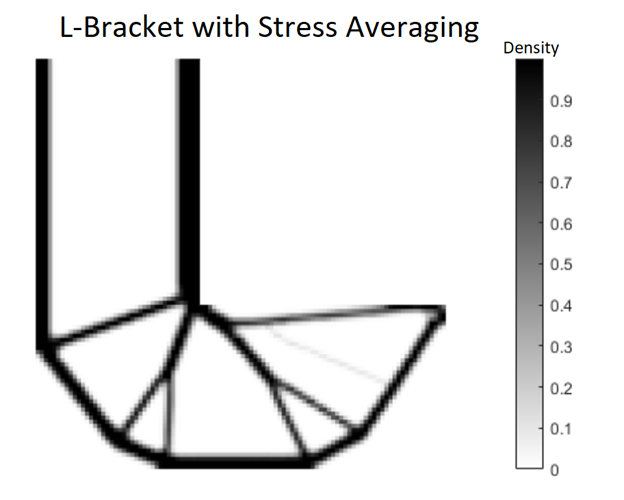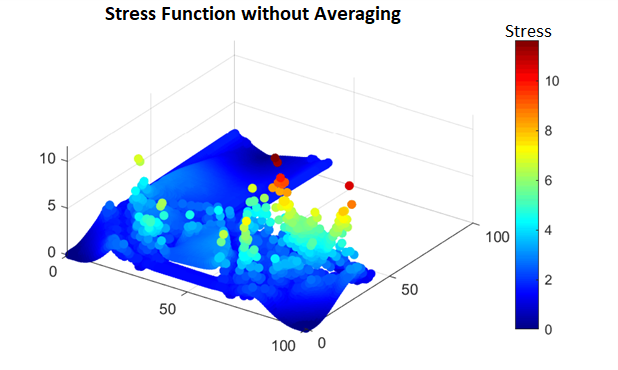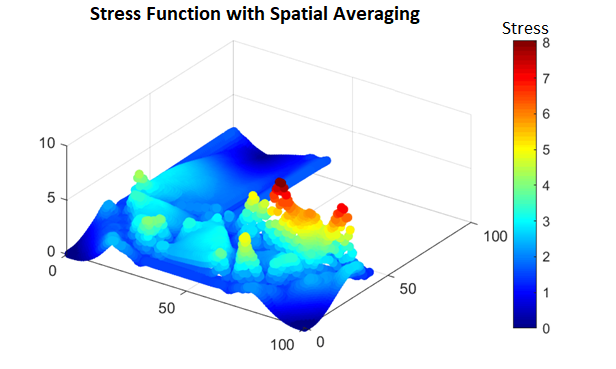
Figure 1

Figure 2

Team 73
Team Members |
Faculty Advisor |
Justin Guilfoyle |
Dr. Julián Norato Sponsor Other |
sponsored by

The objective of this research project is to investigate the effects of stress averaging techniques on the accuracy of designs and convergence in stress-based topology optimization (SBTOP). Topology optimization (TO) is a structural design methodology used to determine the optimum design for an engineering challenge. Compliance-based TO algorithms are typically used in commercial engineering due to the amenable mathematic properties of structural compliance. Compliance-based algorithms do not necessarily produce designs optimized to a material’s failure criteria. These designs require post-processing to remove excess material and/or produce a feasible design. SBTOP algorithms evaluates the structural response of a design via the stress function which reduces post-processing requirements. The use of the stress function poses several challenges including the accuracy of stress values and the smoothness of the stress function over the design domain. Stress averaging techniques are a proven error recovery technique used in finite element analysis to improve the accuracy of stress values. Stress averaging has been implemented in a density-based SBTOP algorithm to determine its effect on performance and the optimality of designs.
